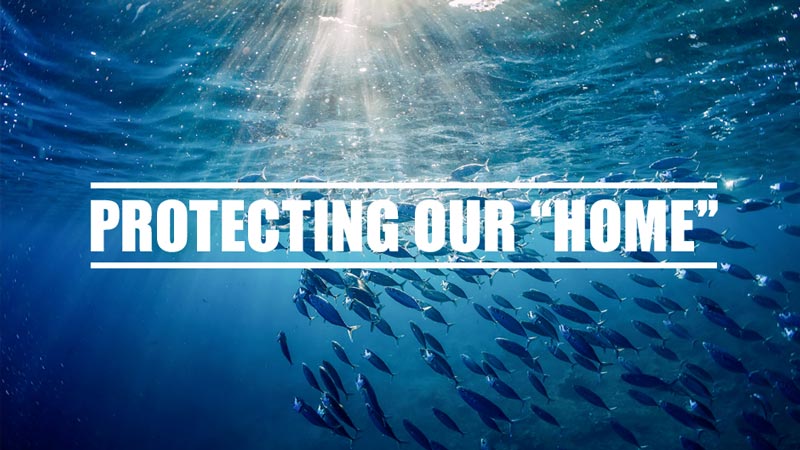Protecting Our “Home”

Protecting Our “Home”. The best wellspring of life on our planet is considered to be the sea. It is the air we inhale, the natural environment for some of the world’s most splendid animals, and a recreational space, or perhaps a secondary home, for recreational divers. Thus, it stands as the primary but the most fragile link in the chain of life. Nevertheless, in recent times, human activities, such as the extensive use of plastics, have led to the contamination of underwater environments across the globe.
More plastic has been produced in the past decade than in the previous hundred years. Nearly all plastic created still remains in some form on our planet. The tiny plastic particles that float on the surface of the sea are known as “microplastics” and originate from larger plastic pieces which, over time, degraded due to continuous exposure to the sun, sea salt, and powerful waves.
The rough and uneven edges of these microplastics allow chemical pollutants to attach to them, making them highly toxic. When aquatic creatures mistake these microplastics for small fish or plankton, they ingest them along with their toxins. These toxins are then passed into the bloodstream and accumulate around the fatty tissue surrounding the vital organs. When the stored fat is used to generate energy, the toxins are released, negatively affecting the aquatic life’s metabolism, reproduction, growth, as well as its hepatic and renal functions. Experts in the field claim that the majority of sea turtles and nearly all sea birds have ingested microplastics during their lifetimes.
Therefore, while aiming to make our lives easier, we have tragically intervened in the natural routines of aquatic organisms. However, taking action is never too late. Every one of us can take steps to significantly reduce the amount of plastic that ends up in the sea. Here are four easy-to-adopt methods that could make an impact starting today:
- Reduction in the use of disposable plastics: Completely eliminating disposable plastics from our lives is impractical. Nevertheless, replacing single-use plastics (e.g., coffee cups, plastic cutlery, plastic shopping bags, water bottles, etc.) with multi-purpose items can significantly reduce the amount of plastic that ends up in our oceans.
- Proper disposal through recycling: If the use of disposable plastic is absolutely necessary, ensure the proper disposal of such waste through recycling.
- Organize or participate in cleanup efforts for beaches: Effective change can be achieved through collective effort. Well-organized cleanup initiatives educate and encourage the public to take an interest in the ecosystems of their local beaches.
- Support organizations working to address the issue of plastic pollution: Proper education surrounding the issue itself is a contribution. Seeking additional informative material will enhance your understanding of the plastics problem. Additionally, a small contribution will support the pioneering work of organizations in this field.
Recreational divers serve as a communication channel between the underwater world and society, being a part of both. It is our responsibility not only to express our love for the protection of our oceans but also to set an example for others through our own behavior. Our greatest asset is our knowledge.
Therefore, as evident, proper protection of our oceans can arise through collective effort and individual actions that may lead to a positive change in our collective behavior.
Protecting Our “Home”

